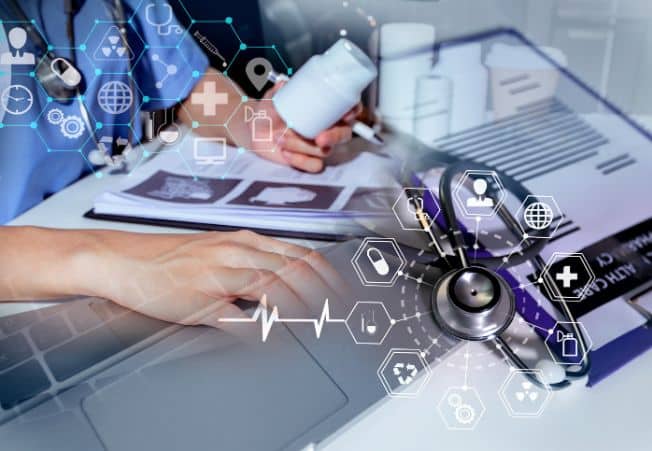
In the ever-evolving healthcare landscape, AI self-service tools are making a significant impact. These innovative technologies are streamlining patient interactions, reducing wait times, and enhancing overall satisfaction. By leveraging AI, healthcare providers can offer more efficient workflows, allowing for a smoother and more personalized patient experience.
This blog explores the transformative impact of AI self-service tools on patient experience in healthcare. From reducing wait times to improving patient satisfaction and streamlining workflows, AI is revolutionizing the way patients interact with healthcare providers. Dive into real-world examples that highlight the benefits and efficiencies AI brings to modern healthcare.
Artificial Intelligence (AI) is transforming numerous industries, and healthcare is no exception. The integration of AI self-service tools in healthcare is particularly revolutionary, offering significant benefits to both patients and providers. These tools are designed to streamline processes, enhance patient satisfaction, and improve overall healthcare delivery. By leveraging AI, healthcare facilities can reduce wait times, improve patient satisfaction, and create more efficient workflows.
One of the most immediate benefits of AI self-service tools in healthcare is the reduction of wait times. Traditional healthcare systems often suffer from lengthy wait times, whether for scheduling appointments, receiving test results, or getting answers to common medical questions. AI-driven chatbots and virtual assistants can handle a variety of tasks, from scheduling appointments to answering frequently asked questions, thereby freeing up medical staff to focus on more complex issues.
For instance, the Cleveland Clinic implemented an AI chatbot to assist with appointment scheduling and answering patient inquiries. This AI system significantly reduced the time patients spent on the phone and streamlined the appointment booking process. As a result, patients experienced shorter wait times and quicker access to medical care, leading to increased satisfaction.
AI self-service tools play a crucial role in enhancing patient satisfaction by providing personalized and timely responses to patient needs. These tools can offer 24/7 support, allowing patients to access information and assistance at any time. This constant availability helps patients feel more in control of their healthcare journey, ultimately leading to higher satisfaction levels.
AI self-service tools also contribute to more efficient workflows within healthcare facilities. By automating routine administrative tasks, these tools allow healthcare professionals to focus on patient care and other critical tasks. AI can assist with data entry, patient triage, and even initial diagnosis, reducing the administrative burden on healthcare staff.
The Mayo Clinic has successfully implemented AI-powered tools to streamline administrative workflows. Their AI system assists with patient check-ins, collects medical histories, and even performs initial symptom checks. This automation has led to significant time savings for healthcare staff and improved the overall efficiency of the clinic’s operations.
The integration of AI self-service tools in healthcare is revolutionizing the patient experience. From reducing wait times and enhancing patient satisfaction to improving workflow efficiency, AI is making healthcare more accessible and efficient. Real-world examples and case studies demonstrate the tangible benefits of AI in healthcare settings.
Ready to revolutionize your healthcare facility with AI? Contact us today at [email protected] to learn more.
Engage with us to explore how AI can transform your healthcare delivery and elevate patient satisfaction to new heights. Let’s discuss how AI can benefit your organization and ensure a brighter, more efficient future for healthcare.
















